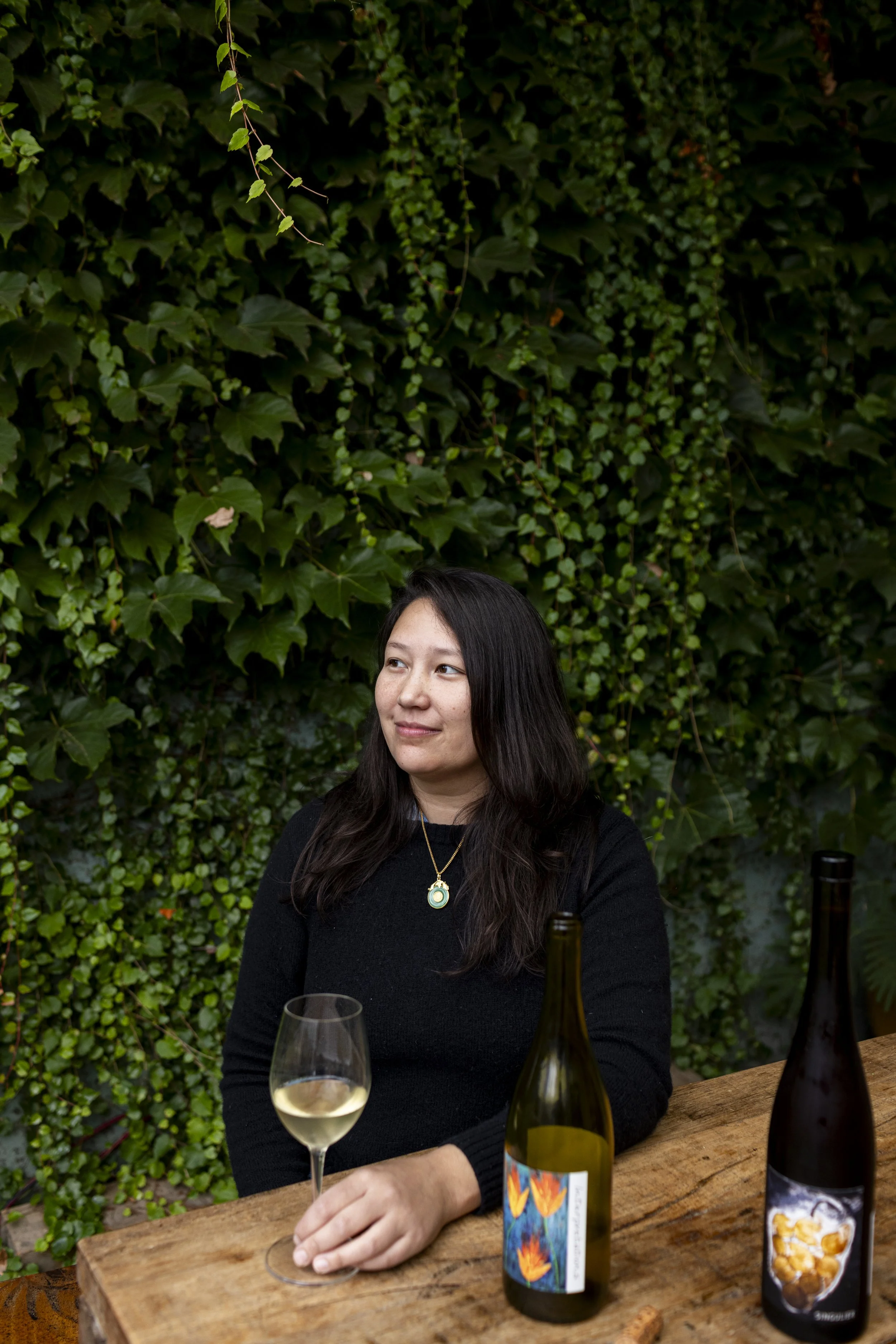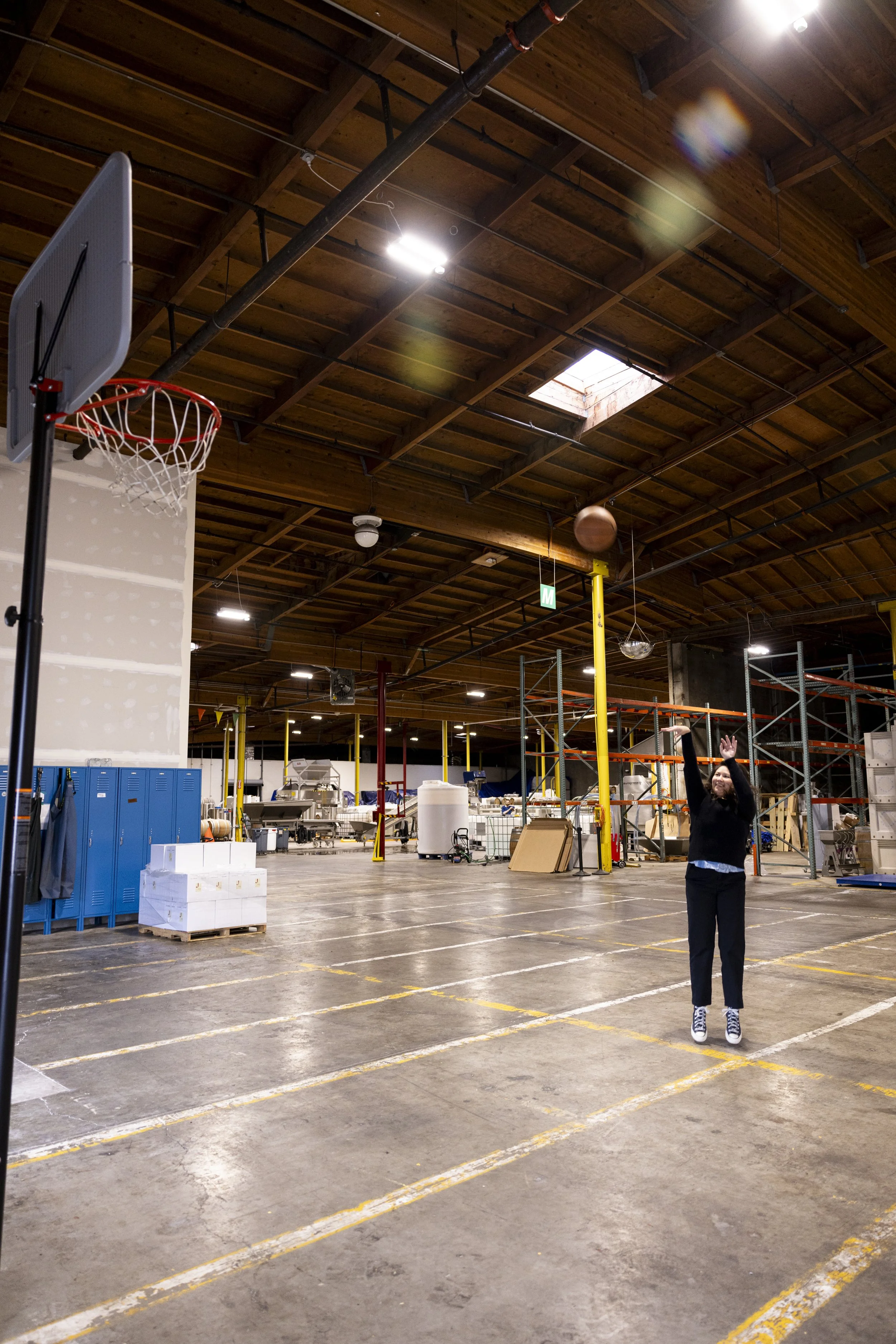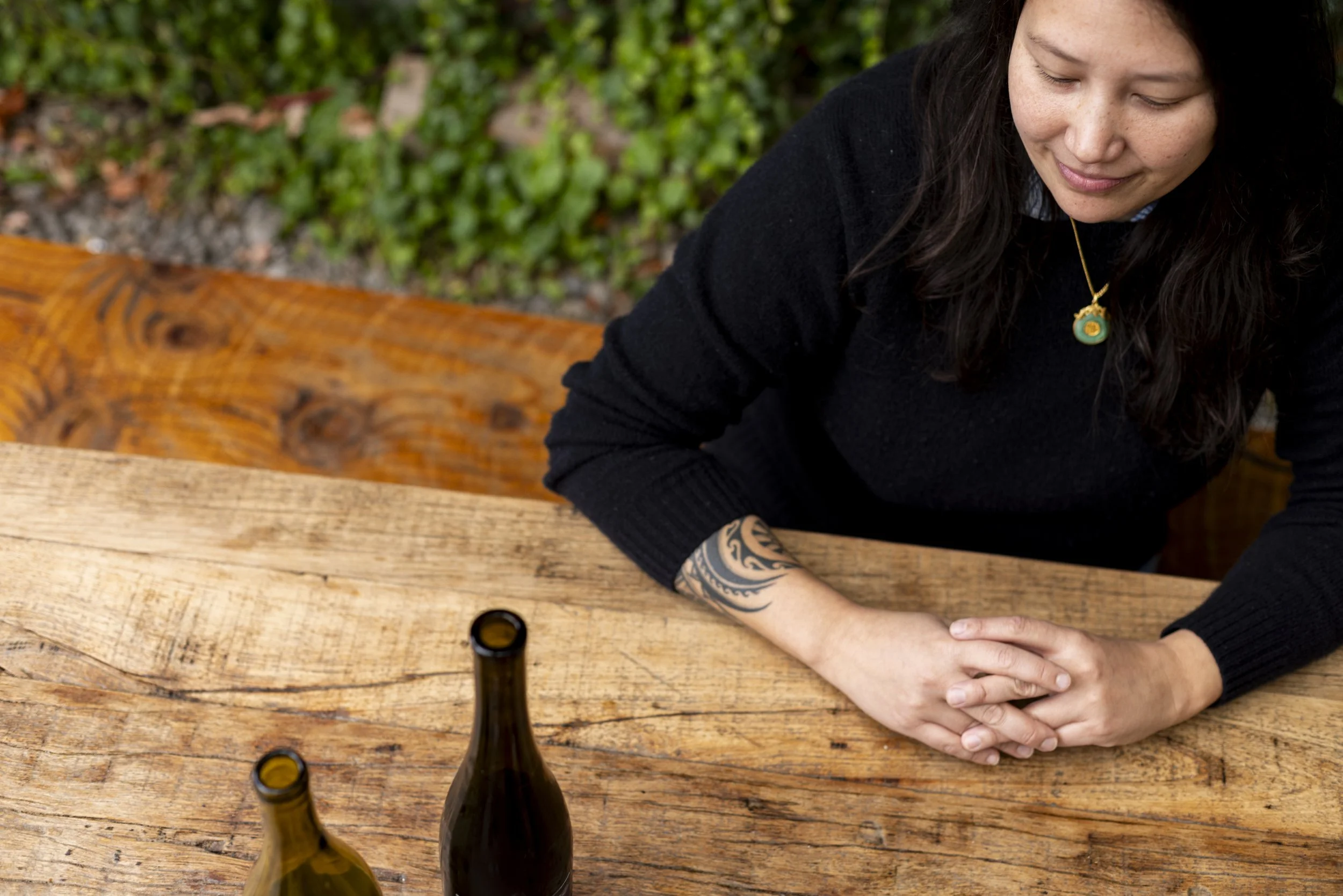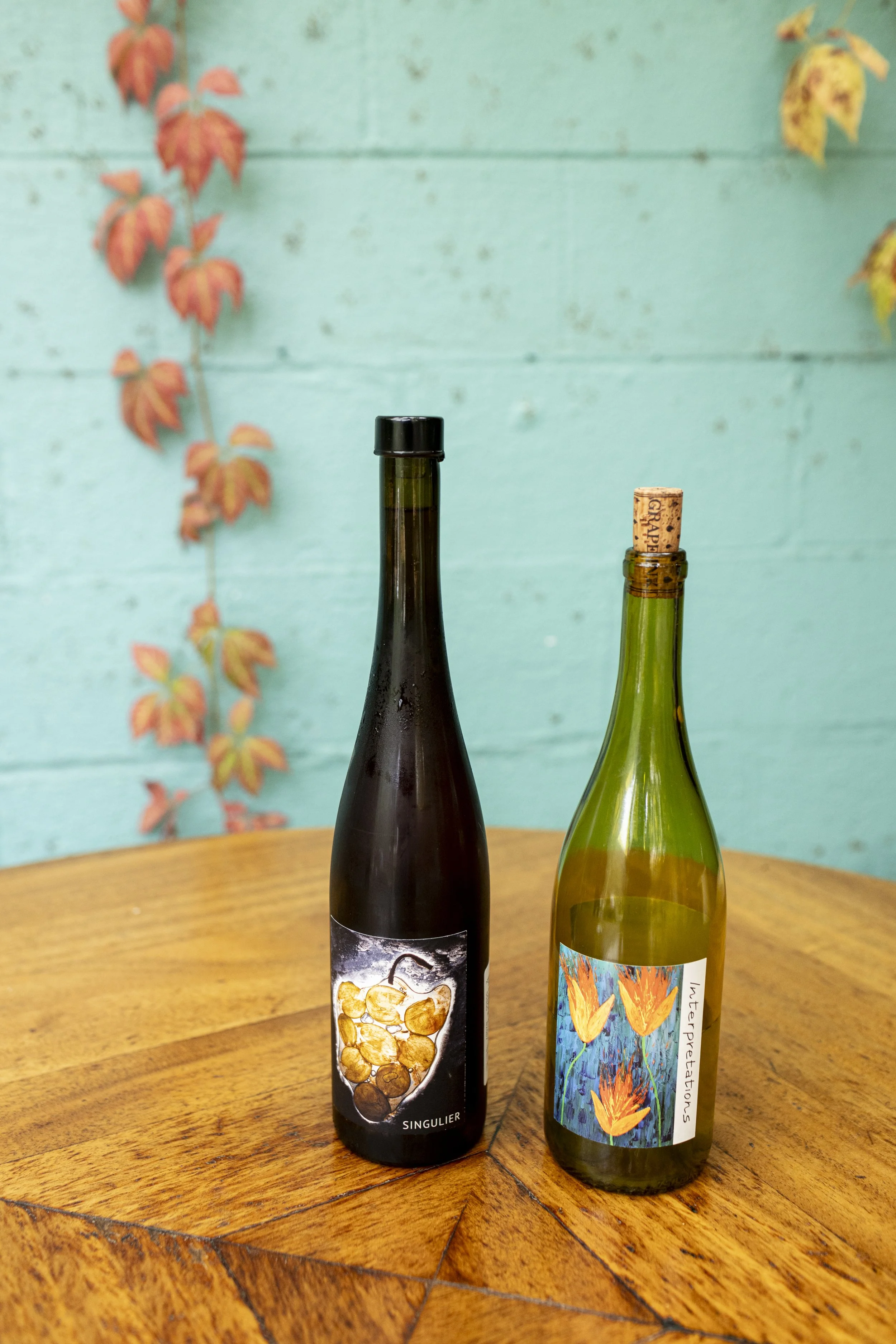Ocean Yap-Powell
Before having met her, I was told Ocean was the go-to wine person. And when I finally was lucky to be in her presence, I overheard her talking about being culturally Hawaiian but being ethnically Chinese and the nuance and difference (and this was a conversation she said she had with her grandmother!). Being Korean American, I couldn’t wait to get to know her more.
Ocean Yap-Powell intersects everything. She can tell you how wine can change the world, how consuming it and listening to what you like, what you taste, or feel, can give you more intuition to yourself. “Sometimes it’s not necessarily the flavor of the wine that lingers, it's the stories.”
As we get to experience wine at AVP in PDX by five different wine makers, our hope is that learning about Ocean and the variety of ways life intersects, that you will join us and can enjoy your wine with more complexity and care.
Photography by Celeste Noche
Wine 101 with Ocean Yap Powell at AVP Wines
Date: Sunday, February 23, 12-2PM
Admission: $45
Where are you from? And where are you now?
I am a second generation Oregonian! Both sides of my ancestors are voyagers. Generations ago, my Mother’s side of the family was enslaved from China to work the sugarcane fields of the Hawai’i Islands. My Tutu (grandma) and Grandpa came to Portland for college in the late 40s, before Hawai’i was a US state. On my Father’s side, the viking blood traveled from Norway to the farmlands of Minnesota and then to Portland. As a divorce kid, I got to grow up in the high desert of central Oregon and the hayfever fields of Eugene. Today, Portland is my home. What jobs led you to where you are now (both in place and in career)?
I was 21 years old, attending Portland Community College, trying to figure out my future path. Taking a range of classes, I was searching for passion. I found it that summer at a small family run vineyard in the Tualatin Hills of Oregon.Wine pulled me in and has become my career focus. From working in vineyards to making wine, to standing behind the bar of tasting rooms, to selling bottles & stories in retail to sharing my voice through wine writing, I am now the wine director for Han Oak and their sister restaurant Jeju. My experience in the Oregon wine industry has shaped who I am today. For me it’s not just about the wine itself but focusing beyond the vineyard and into the community. Wine has become the bridge to invite underrepresented communities to the table and influence changes fueled by accessibility, education, and empowerment. What drew you to wine?
What continues to pull towards wine is the connection to land and the community. The heart of the vineyard and the people who are making it leaves the biggest impact on me. Over my career in wine I have had many opportunities tasting incredible wines– what sticks with me over the years is the story of the winegrower over the flavor of the wine. Yes, the wines are BOMB.COM but the lasting impression of the wine farmer is what lights the fire in my continued education in the world of wine. From speaking up to writing it out, the root of my focus is powered by all the moments when I felt like I was unheard and unseen. I know I am not alone in this feeling. The undiscovered voices who have been left out and pushed out because of who they are is as deep as our ancestors. I aim to change that narrative. The best part about wine? It goes with everything, even revolution.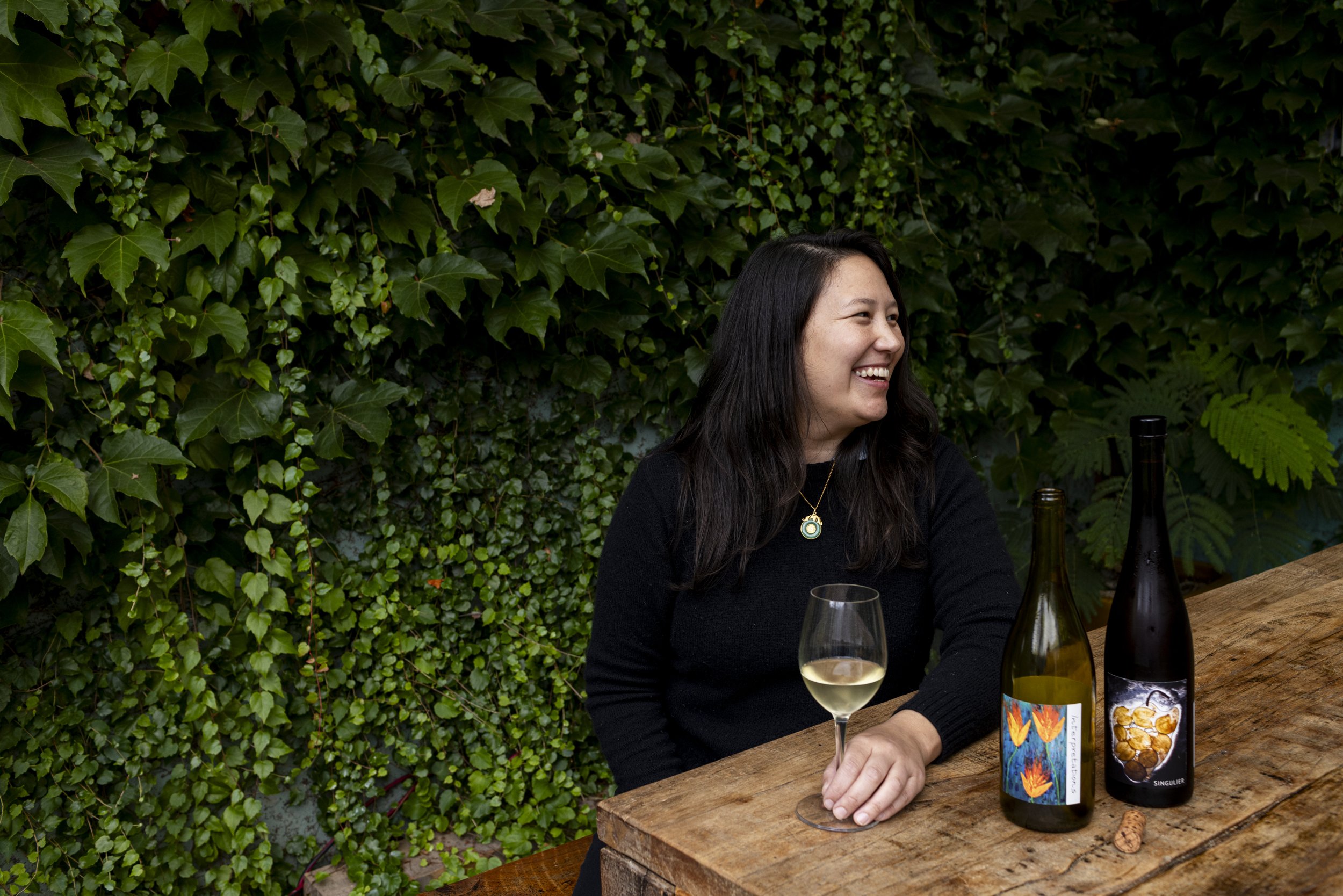
There is such an intersectionality when you speak about ANYTHING and EVERYTHING Ocean! I love how at Field Trip we went from talking about a certain kind of wine, to family history and heritage, talking about being both Chinese but Hawaiian and which title(s) belong to who and why. How did you develop and learn to think with so much care and in a way that includes so much?
One particular night I was sharing a bottle of Pinot Noir made by an Oregon Mexican-American winemaker. Pouring a taste for a new friend, they asked, what do you do? I’ve always struggled when someone asks this. Before I could answer, my friend replied, “Ocean is a wine disrupter”. The revolutionary in me smiled, “Yeah, I am”. My sharpened intention on social justice is shaped by my existence. Growing up, it was common in my household to curiously discuss injustices in our social and environmental world. I learned about community, advocacy, and equity at a young age for survival. A ringing tone I often heard was if you’re not at the table you are on the menu. I believed this wholly heartily when I entered the wine industry thirteen years ago. Today, I recognize that the table was never set for me. The menu didn’t represent my community, culture, or identity. The continued social justice work that I do today reflects the necessity for more representation in our wine industry. The restorative ability that comes from inclusion in our wine industry has the power to lift the boundaries and empower the resilience of priority communities.
Priority Communities : BIMPOC-Black, Indigenous, Multiracial, People of Color, AAPINH- Asian American, Pacific Islander, Native Hawaiian, LGBTQI2S+- Lesbian, Gay, Bisexual, Trans, Queer, Intersex, Two-Spirited, Communities with disabilities, Deaf & Hard of Hearing
When you’re thinking about being a WOC and someone who is queer in a space in like wine, do you feel welcomed in and like it’s your space to take? What has surprised you about being exactly who you are in the space that you’re in (wine) or what challenges have you been surprised by?
As a woman of Color in a white male dominated industry, I experience racial microaggressions constantly. Racial microaggressions are the everyday verbal and non verbal actions that are intentional or not that have negative messages and hurtful impacts. Comments or actions that are made reveal assumptions and bias on the behalf of the speaker that BIMPOC & AAPINH (Asian American, Pacific Islander, Native Hawaiian) people are not able to be in positions of management, authority, or knowledge to speak about wine. These comments happen OFTEN. Microaggressions happen behind the counter, in the store, at the restaurant, in wine country, and in conversation. But the culture is slowly changing. It’s being led by voices that have been underrepresented for a long time and I am part of that change. Wine has taught me to be innovative in the way I relate to people. When we talk about diversity, disability is almost always forgotten. There is no true inclusion or equity without disability. I am often the only one with my intersecting identities (a queer AAPINH woman with an invisible learning disability) in the room. I embrace the intersectionality of my identity and ask, what can we do? I see leadership as an opportunity to collaborate, connect, and challenge ideas that are not inclusive or equitable. I want people to understand how I approach and embrace wine from a different perspective that is not only empowering and inviting to under-represented communities but creating a space for those communities. Today, our presence has power.“The restorative ability that comes from inclusion in our wine industry has the power to lift the boundaries and empower the resilience of priority communities.”
— Ocean Yap-Powell

When you think about being where you are, in time and space, and when we talked about this event, you brought up AVP pretty quickly. What makes them and the work they’re doing with small business owners and wine makers special or unique?
AVP’s meaning comes from the Latin saying, Alis Volat Propriis "She flies with her own wings" also, the state motto of Oregon! It is the core of what this collective urban winery in Portland does. Oregon’s overall wine production has increased but the barriers of entry for women, people of Color, and the LGBTQI2S+ winemakers continues to be challenging. AVP's 60,000-square-foot facility houses 10+ labels in a cooperative space, sharing equipment, exchanging ideas, and empowering each other. Urban wineries are a great opportunity for small producers that do not own land– they are able to purchase fruit from established Oregon and Washington vineyards and bring it to AVP to make wine under their label. Urban wineries are a window into the spectrum of the wine world, you can make wine anywhere. Have you found any correlation between the land, and working with the fruit, working with the agriculturists, the climate, that makes you wish that people drinking/consuming/purchasing wine, knew more about? There is an interconnectedness that exists that I think we as consumers don’t often consider.
Within a single use bottle, wine is the most expensive agricultural product. My family had a bumper sticker on our car that said “Know Your Farmer!” We grew up eating food from organic and biodynamic farms. The concept of farmers being one with the land is not new, especially to my ancestors. I believe the core of good grape farming is to be proactive rather than reactive; to heal, not harm. It is a homeopathic approach that seems to really work, you see it in vineyard soils and you taste it in the bottle. I respect the committed bond between the grower and the vine. Most of the time those working closest with the vines are underrepresented in the world of wine. BIMPOC, Latinx, Mexican-American vineyard stewards are not paid fairly for their commitment and hard work to the vine. I am an active advocate to uplift these voices and bring recognition to communities and families that are forgotten in the winemaking process. Supporting local Oregon organizations like Ahivoy, who strengthens the Oregon wine community by empowering vineyard stewards through education, we can break barriers of entry and see more diverse makers in our industry. What do you see yourself doing in the next 5-10 years? Does it include wine?
I want to prove it to myself that I can make a career in the wine industry. I want to continue to learn and show up for the community. I want to continue my consulting work, making wine accessible for communities of Color and Priority communities. I am currently the program advisor for the Becky Wasserman BIPOC Symposium that takes place annually in Burgundy, France. It is an incredible learning opportunity for BIPOC Americans to learn about the most sought after wine in the world. This immersive experience is important to the community building we are all looking for. Instead of being dependent on wine guides or specialties, I want to empower people to trust their own palate and encourage communities that there is an alternative way to learn about wine. In 10 years? I wanna drink all this baller wine I’ve been holding on to!“I want to empower people to trust their own palate and encourage communities that there is an alternative way to learn about wine.”
— Ocean Yap-Powell
What do you hope for the people who attend our Wine 101? Or any notes or points to consider for anyone who ever goes wine tasting like the workshop we’re providing that you wish folks would be mindful of?
Approach wine that breaks the system! The spectrum of wine is wide for us all to find our pace and whatever makes us curious.
Wine can be seen as an analogy, you can study it for life! Find what pulls you in and dive in. Ask questions, try all the wines, and trust your palate. The most important thing about wine is if you enjoy it. Sometimes it’s not necessarily the flavor of the wine that lingers, it's the stories. Take the soundbite you want to share with your people.
What is your go-to blend, taste, bottle? Who are your favorite wine companies and small businesses to support that we as a community can also support?
AHIVOY : A nonprofit organization creating opportunities and empowering Latinx and Hispanic vineyard workers of the Willamette Valley to overcome socioeconomic challenges.Providing education and professional development, paving the way for our hardest-working community members to support their families and establish careers in the wine industry.
Sydney Love | Substack Black Wine Writer researching America’s first vintners
Jermaine Stone | The Wolf of Wine Learn about wine through hip-hop PNW Wineries I Love: Grape Ink, Junichi Fujita, Niew Vineyards, Shiba Wichern, Landmass, Hundred Suns, Abbey Creek Vineyard, Kelley Fox, Gonzales Wine Co, RAM Cellars, Statera Cellars, Alumbra, Cramoisi Vineyard, Cameron Vineyard, Dolores Wines, Loop de Loop, The Color Collector, COR Cellars, CHO Wines, Mijita Wine CO, Nueva Aventura Wines, Stoney Wines, Maison Noir Wines, Kramer Vineyards, Patricia Green Cellars 

